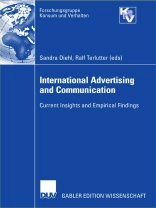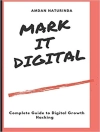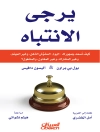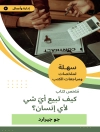Worldwide, international communication, and in particular international – vertising have become critical areas in communication research. The growing globalisation of markets requires firms to take an increasingly international orientation in developing communication policies. The goal of this book is to contribute to more systematic research in this field. Renowned communication researchers from around the globe have contr- uted to the making of this book. The contributors hail from countries throughout Europe, as well as from the U.S., Asia and Australia. This international mix of authors offers the reader a comprehensive overview of current thinking and cutting-edge research in the area of international advertising and communi- tion. The text includes cross-cultural investigations, as well as studies represe- ing the respective countries of the researchers. Several of the contributions are th expanded papers from the 4 ICORIA (International Conference on Research in Advertising; www.icoria.org), which took place at Saarland University in Sa- bruecken in 2005. The book addresses a number of important areas of communication – search: advertising and communication effects; advertising and information processing; communication and branding; emotional, social and individual aspects of communication; communication and new media; international adv- tising and, finally, perspectives on the future of international advertising. – spite the great variety of issues covered, all papers are united in their desire to move international communication research forward.
Inhaltsverzeichnis
Advertising and Communication Effects.- The role of product involvement in advertising message perception and believability.- Interview based STAS and the effect of print advertising.- It’s all about catching the reader’s attention.- The effect of the integration of different acoustic and visual stimuli depending on target groups involvement.- A comparative test of the effect of communication strategy, media presence, and previous purchase behaviour in the field of fast moving consumer goods.- Advertising and Information Processing.- Unconscious processing of advertising and its effects upon attitude and behaviour.- Processing outdoor posters: product- and brand recognition in a split of a second.- Rhetoric in advertising: attitudes towards schemes and tropes in text and image.- A window to the consumer’s mind: application of functional brain imaging techniques to advertising research.- Communication and Branding.- Creating powerful brand names.- How do marketing-events work? Marketing-events and brand attitudes.- Effects of green brand communication on brand associations and attitude.- Emotional, Social and Individual Factors and Communication.- Effects of mood and argument strength on product evaluation in a personal sales conversation.- How do people react to mixed emotions in an ad/medium context setting? The moderating role of discomfort with ambiguity.- Media-based and non media-based factors influencing purchase behavior and differences due to consumers’ personality.- Increasing family democracy and the implications for advertising.- A gender portrayal of children’s television commercials in mainland China.- Gender portrayals and the gender of nations: an extended study in Asian cultures.- Communication and New Media.- Effects of interactive andimagery-strong websites.- Comparative evaluation of American brands’ websites in Europe: what do they standardise?.- Integrated marketing communications in mobile context.- International Advertising.- The GLOBE study — applicability of a new typology of cultural dimensions for cross-cultural marketing and advertising research.- Towards an understanding advertising standardisation in the European Union: a theoretical framework and research propositions.- Assessing measurement invariance of ordinal indicators in cross-national research.- Retail advertising: an empirical comparison between German and French consumers.- Outlook on International Advertising.- The future of international advertising research: suggestions for moving the discipline forward.
Über den Autor
Dr. Sandra Diehl ist Assistentin am Institut für Konsum und Verhaltensforschung der Universität des Saarlandes Saarbrücken.
PD Dr. Ralf Terlutter ist Assistent am Institut für Konsum und Verhaltensforschung der Universität des Saarlandes Saarbrücken.












